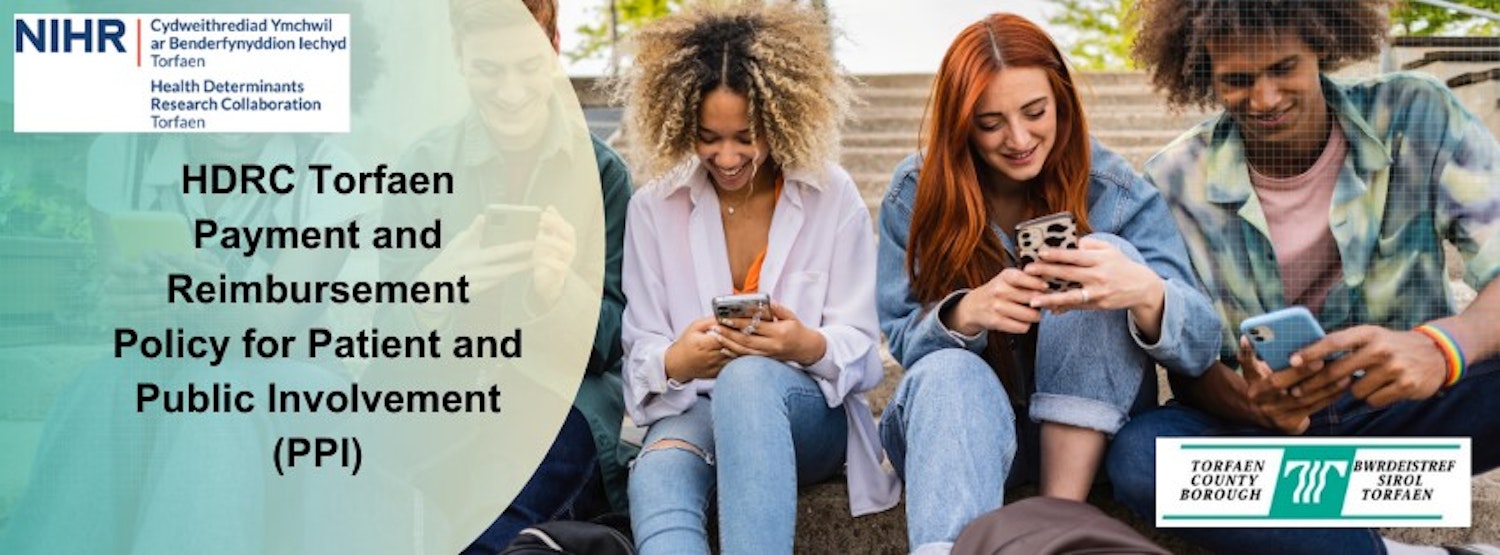
HDRC Torfaen Payment and Reimbursement Policy for Patient and Public Involvement (PPI)
HDRC Torfaen Payment and Reimbursement Policy for Patient and Public Involvement (PPI)
Our PPI Policy
What is this about?
This policy explains how people who are involved and contribute to research (known as Patient and Public Involvement, PPI), can get paid back for their expenses and get paid for their time and contribution.
